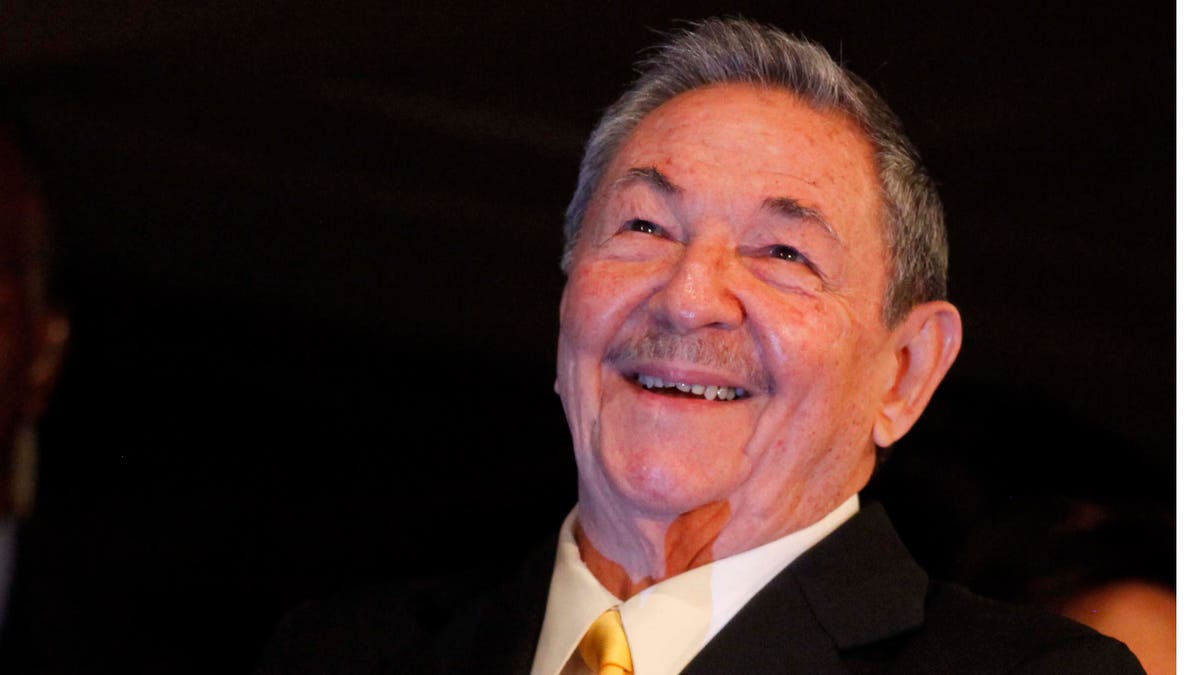
Cuba's President Raul Castro attends the opening ceremony of the 22nd International Ballet Festival in Havana, Cuba, Thursday, Oct. 28, 2010. The festival ends Nov. 7. (AP Photo/Javier Galeano)
Cuban President Raul Castro told union leaders that they must help the country’s workers understand the urgency behind the coming layoff of half a million people in order to keep Cuba from falling “into an abyss.”
Castro, who took over from his brother Fidel – first temporarily, then permanently – in 2006, told the union leaders that they should not hide the deep economic problems facing the cash-strapped island.
"The benefit of errors is that at least they give us the experience not to repeat them," Castro said in a blunt speech to leaders of the 3-million-strong Cuban Workers Confederation, which is affiliated with the Communist Party and the only labor union allowed by the government.
He said it is essential that union leaders resist the "pernicious tendency" to cover up problems, according to a report on the front page of Monday's edition of the Communist Party daily Granma.
Cuba has announced that it will lay off half a million state workers — 10 percent of the total labor force — by March, while making it easier for individuals to open up private businesses. Castro has said another half million workers will need to leave government jobs within five years.
Raul has worked to put fallow government land in the hands of small farmers and has railed against the inefficiency of the labor force. He has said Cuba must not be the only country in the world where people expect to get paid for not working.
Even as he has opened the door to limited capitalism, the Cuban leader has insisted that the changes are consistent with the socialist ideals of the revolution he and his brother ushered in following their 1959 ouster of dictator Fulgencio Batista.
He said Sunday that workers' acceptance of the economic overhaul is fundamental to its success.
"In order to defend and explain the (new economic) measures, the working class must have knowledge of them and be convinced of their importance to the continuation of the revolution," Granma quoted Castro as saying. "Otherwise, we will fall into the abyss."
Economy Minister Marino Murillo told union leaders the country's problems stem from the fact that workers are not productive enough to merit the salaries they earn. The average worker earns just $20 a month, but in return receives free education and health care, nearly free housing and transportation, and some basic food.
"Society is handing out consumer goods more quickly than it is creating them," Murillo said. He warned that the labor force is too heavily tilted toward the service sector, with far too few workers actually producing anything. "This labor structure would not allow any economy to function well."
In most countries, such massive layoffs as the ones taking place in Cuba would produce deep concern, and likely lead to labor unrest. But union leaders here have quickly fallen in line with the changes.
In fact, it was the Cuban Workers Confederation that officially announced the layoffs back in September.
On Sunday, union leader Salvador Valdes reiterated the organization's support for the economic overhaul, though he did put in a good word for Cuba's much-maligned workers.
"In 50 years, the working class has never failed the revolution," he said. "Because that would be like failing ourselves."
The Associated Press contributed to this report.
